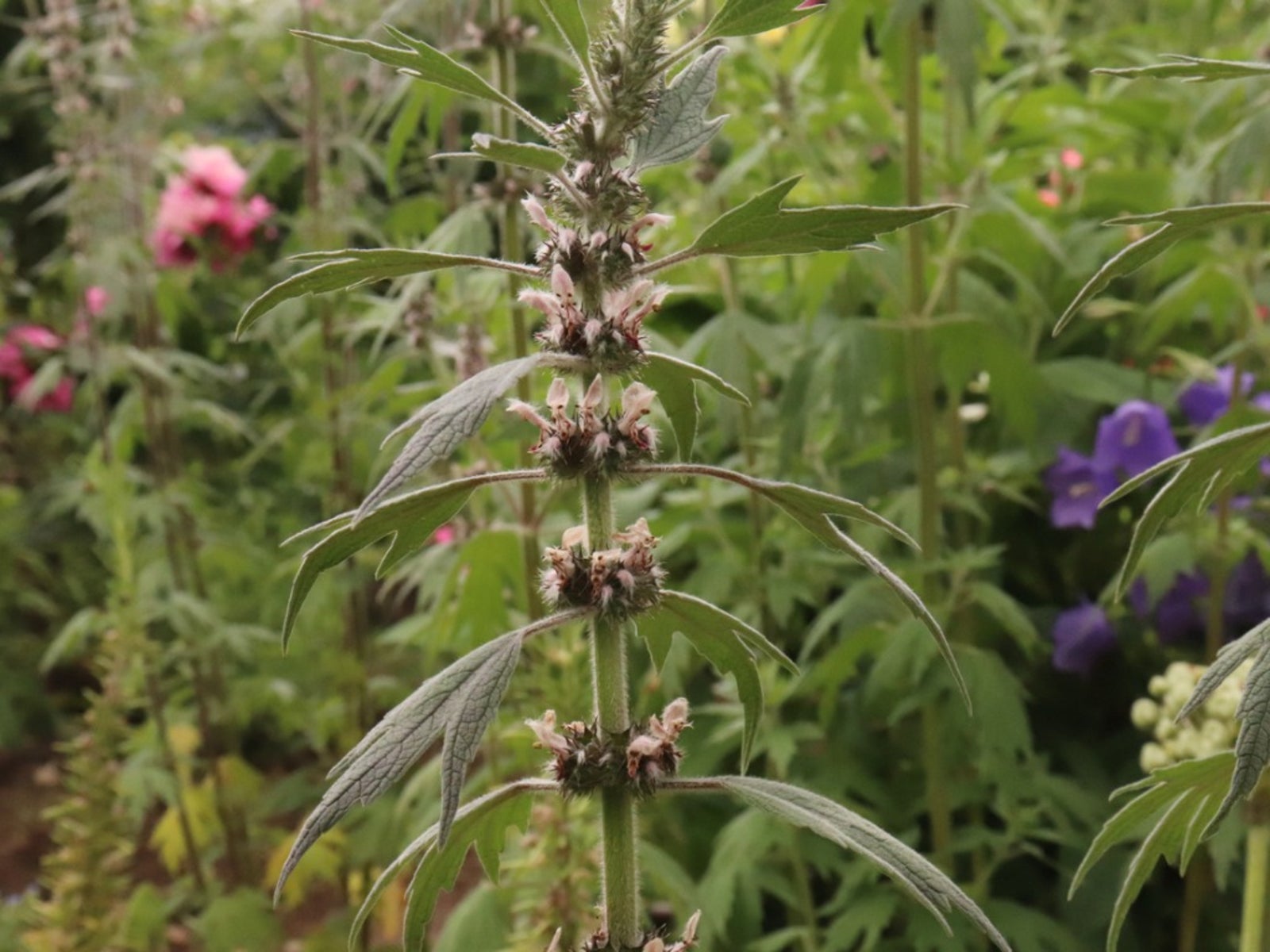Motherwort Plant Info: Motherwort Herb Growing And Uses

Originating from Eurasia, motherwort herb (Leonurus cardiaca) is now naturalized throughout southern Canada and east of the Rocky Mountains and more commonly deemed a weed with a rapid spreading habitat. Motherwort herb growing commonly occurs in neglected gardens, open woods, floodplains, riverbanks, meadows, fields, riverbanks, and along roadsides; really just about anywhere. But what is motherwort besides a rather invasive plant? Keep reading to find out.
Motherwort Plant Info
Motherwort plant info lists its other common names of cowthwort, lion's ear, and lion's tail. Motherwort herb growing in the wild appears as a sturdy stemmed perennial of up to 5 feet (1.5 m.) tall with pink to pale purple clustered flowers of six to 15 axils, or spaces between the leaf and stem, and prickly sepals. Like other members of the mint family, the foliage, when crushed, has a distinct odor. Flowers appear from July through September. Motherwort prefers moist, rich soils and hails from the mint family, Labiatae, with the same growing propensity of most mints too. Motherwort herb growing occurs via seed reproduction and spreads through rhizomes to form large colonies. Although shallow, the root system is very extensive. Motherwort herbs may occur in either sun or dense shade, and as mentioned in a plethora of areas. It is also extremely difficult to eradicate. Attempts to control rampant motherwort plants may include improving soil drainage and mowing close to the ground each time the shoots erupt from the soil.
Motherwort Uses
The genus of motherwort's botanical name of Leonurus cardiaca, is descriptive of its ragged edged leaves, which resemble the tip of a lion's tail. The species name of ‘cardiaca' (meaning "for the heart") is in reference to its early medicinal use for heart ailments - stimulating the heart muscle, promoting blood circulation, treating arteriosclerosis, dissolving blood clots and treating rapid heartbeat. Other motherwort uses are purported to be remedial for nerves, dizziness and “disorders of women” such as menopause and following childbirth. Motherwort herb growing is said to bring on scanty or absent menstruation and to relieve water retention, PMS, and stress or tension resulting from painful menstruation. Motherwort is prepared as either a tincture or tea for relief from any of these ailments. A caution regarding motherwort is that it contains lemon scented oil, which can cause photosensitivity if eaten and also contact dermatitis in susceptible individuals.
How to Care for Motherwort Plants
Provided that after reading my repeated commentary regarding how invasive motherwort is, you still wish to grow your own, the "how to" care for motherwort is very simple. Motherwort is an extremely hardy weed or herb, depending upon who you ask and only requires sun to light shade, most any soil type and enough water to keep moist. Motherwort herb growing will occur and steadily increase with seed broadcasting. Once the herb has laid roots, continued growth of the motherwort colony is guaranteed, and then some! Last warning, motherwort herb is a prolific and unbridled easy-to-grow plant with a propensity to take over the garden - so gardener beware. (That said, you may be able to control its rampant growth by growing the herb in containers much like its cousin the mint plant.)
Gardening tips, videos, info and more delivered right to your inbox!
Sign up for the Gardening Know How newsletter today and receive a free copy of our e-book "How to Grow Delicious Tomatoes".

Amy Grant has been gardening for 30 years and writing for 15. A professional chef and caterer, Amy's area of expertise is culinary gardening.
-
 Looking For Plants To Give You The Soft And Fuzzies? Try These 5 Fuzzy Leaf Plant Options
Looking For Plants To Give You The Soft And Fuzzies? Try These 5 Fuzzy Leaf Plant OptionsLovers of texture, drama, silver foliage and tactile plants will adore these special sensory garden additions. These fuzzy leaf plant options will leave you all aglow
By Susan Albert
-
 Get Ready For A Summer Of Hummers! Grow These Full Sun Hummingbird Plants and Flowers
Get Ready For A Summer Of Hummers! Grow These Full Sun Hummingbird Plants and FlowersIf you’re lucky enough to enjoy a sunny backyard, make sure you are maxing out on your pollinator opportunities and grow these full sun hummingbird plants and flowers
By Tonya Barnett